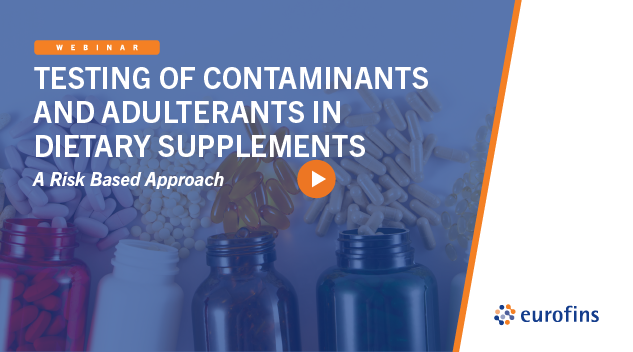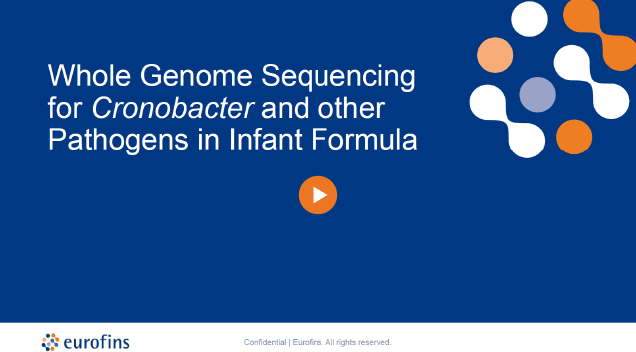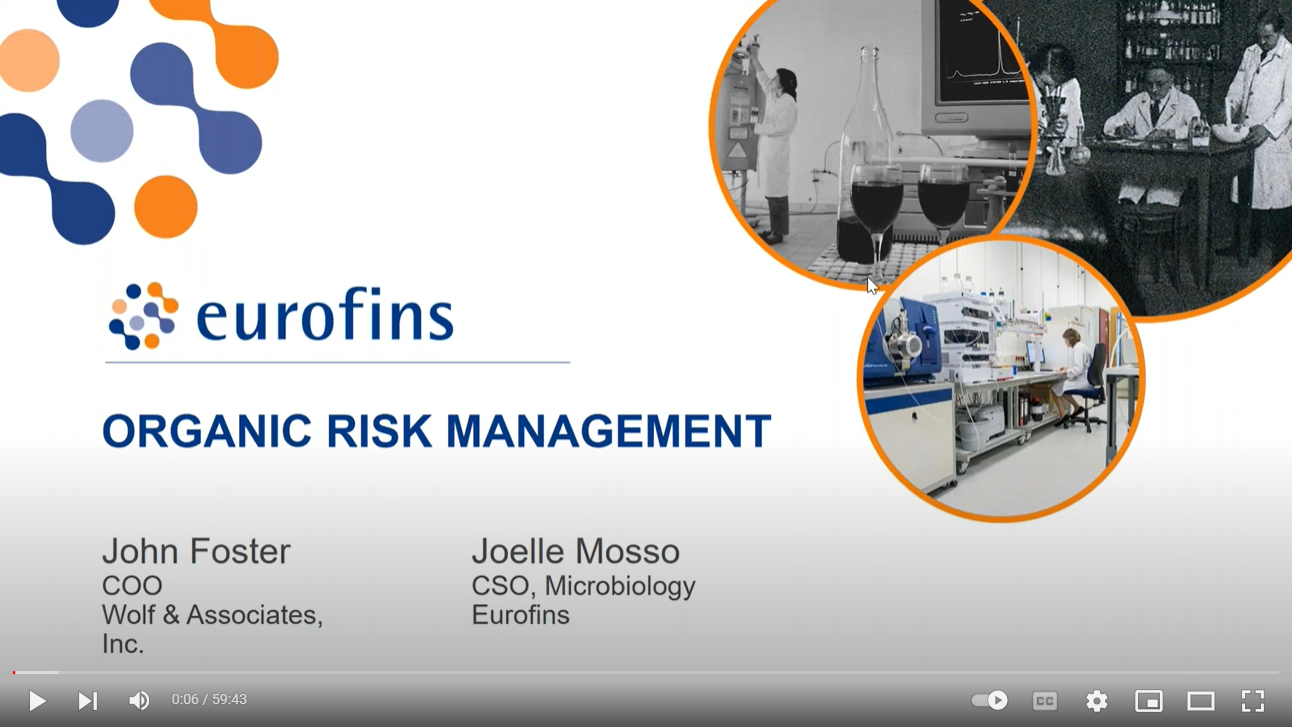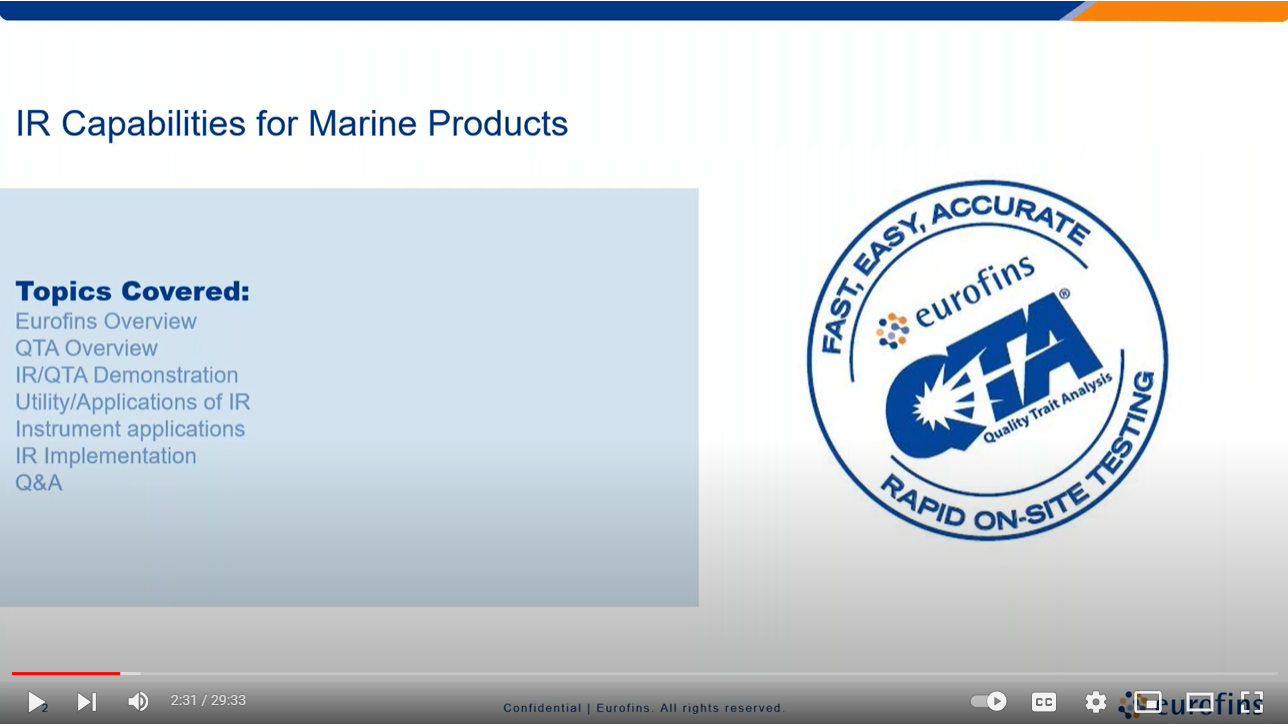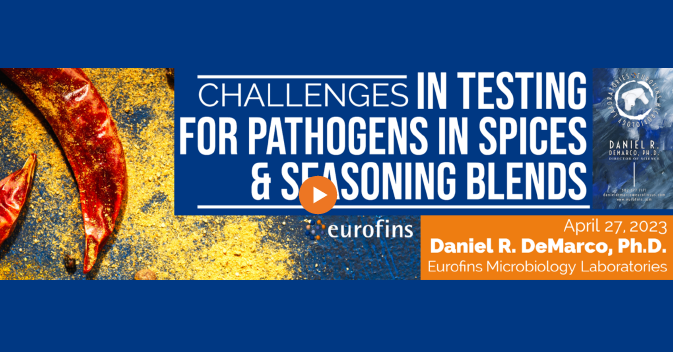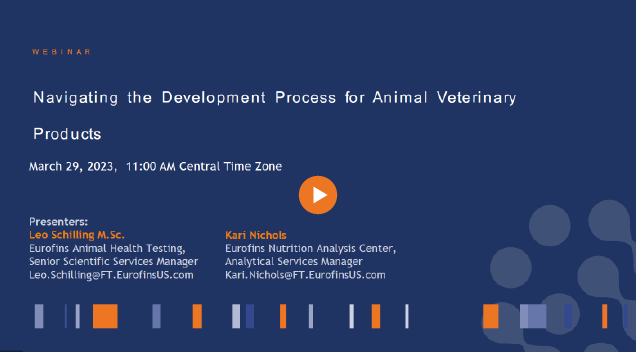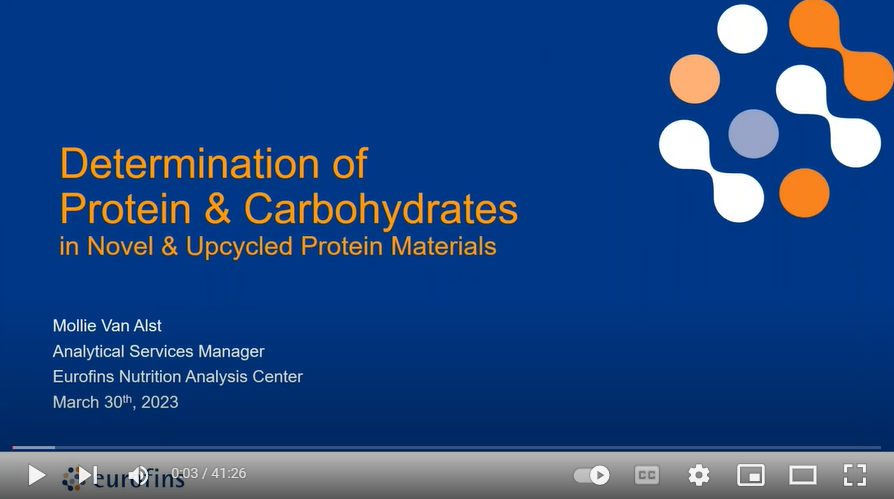Webinars
Search >>
On-Demand Webinars:
Join Eurofins Senior Staff Scientist, Lukas Vaclavik, for a discussion about per- and poly-fluoroalkyl substances (PFAS) in the food industry. Original airdate July 19, 2023.
In this presentation, Dr. DeMarco illustrates how positive pathogen results can be used to make real improvements in processes, facilitating a safer production environment with lower overall contamination risks and safer food for the consumer. Original airdate July 12, 2023.
In this webinar, Jeff Stassi and Lukas Vaclavik will discuss testing for both contaminants and adulterants in your products. Also, the importance of designing the proper monitoring program to ensure your products are safe and compliant. Original airdate June 20, 2023.
In this webinar we review the call to action from the FDA, provide an overview of the technology of whole genome sequencing. Discuss the benefits of whole genome sequencing, and review the ways that Eurofins is ready to support your testing needs. Original Air Date May 18, 2023
Watch this on-demand webinar to learn about the significant organic food industry growth. The webinar provides an overview of the impact of SOE on certified entities, and a discussion on how to build risk management systems to meet regulatory and consumer expectations for your products' organic integrity. Original airdate April 19, 2023.
Is your risk assessment complete?
E.coli, Listeria, Salmonella, Campylobacter, Vibrio, etc. The long list of bacterial pathogens have become common to those managing & developing food safety plans. However, when sitting down for your review of hazards in your HACCP & HARPC plans, it can be easy to forget that bacteria aren’t the only microbes associated with food. In fact, a large share of foodborne illness are caused by viral threats.
In this webinar Dr. Demarco, Associate Scientific Director of Eurofins Microbiology, discusses problems from the perspective of the spice manufacturer, rapid and conventional cultural methods most commonly used when testing for pathogens in spices, issues with testing methods and most commonly used approaches to circumvent them, as well as opportunities for improvements. Original airdate April 27, 2023.
Do you work with animal veterinary products? Join Kari Nichols and Leo Schilling as they help you navigate the process for animal veterinary product development. Original airdate March 29, 2023.
Are you incorporating novel or upcycled protein materials in your products? If so join Mollie Van Alst for this webinar to learn more about the determination of protein and carbohydrates from that material. Original airdate March 30, 2023




